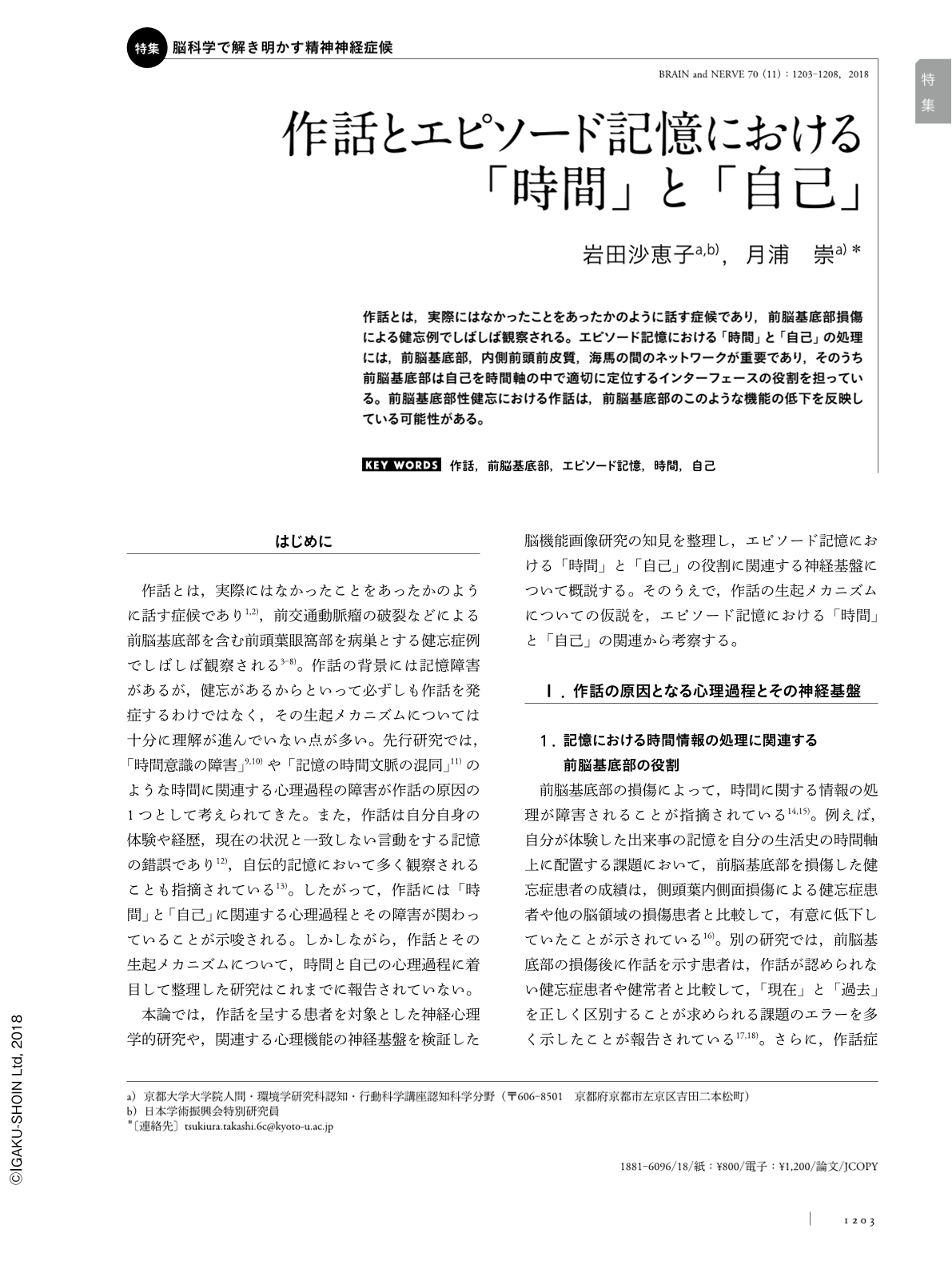Japanese
English
- 有料閲覧
- Abstract 文献概要
- 1ページ目 Look Inside
- 参考文献 Reference
作話とは,実際にはなかったことをあったかのように話す症候であり,前脳基底部損傷による健忘例でしばしば観察される。エピソード記憶における「時間」と「自己」の処理には,前脳基底部,内側前頭前皮質,海馬の間のネットワークが重要であり,そのうち前脳基底部は自己を時間軸の中で適切に定位するインターフェースの役割を担っている。前脳基底部性健忘における作話は,前脳基底部のこのような機能の低下を反映している可能性がある。
Abstract
Confabulation is defined as the production of narrative descriptions of events that never happened, and is often observed in amnesia with basal forebrain lesions. However, little is known about the possible mechanisms related to confabulation. In this review article, we summarized previous neuropsychological and neuroimaging studies associated with confabulation, and proposed a hypothetical mechanism of confabulation. Previous studies have demonstrated that amnesic patients with confabulation after basal forebrain damage are impaired in the processing of time-related information in episodic memory and that activation of this region is significant during the processing of time-related information in episodic memory. In addition, confabulating patients with basal forebrain lesions extending to the medial prefrontal cortex (mPFC), medial temporal, and thalamic regions are likely to show significant disturbances in age-awareness and significant false memories in personally experienced events. Given the importance of the mPFC in the self-referential process and of the hippocampus in the integration of episodic components, the basal forebrain region could play an important role in orienting the self in time by acting as an interface between the mPFC and the hippocampus. Confabulation in basal forebrain amnesia could be caused by a decline of the time-self interaction.

Copyright © 2018, Igaku-Shoin Ltd. All rights reserved.


